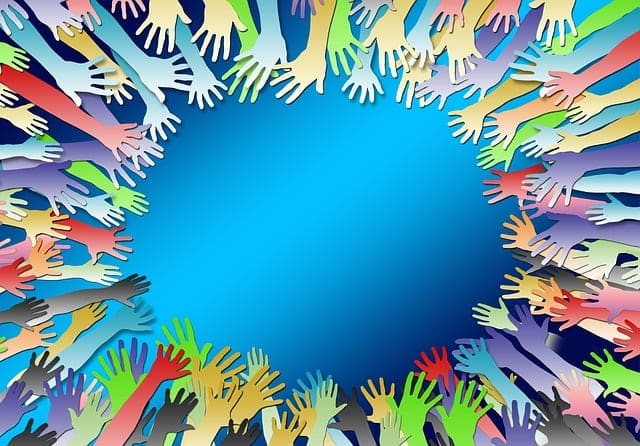Translation of medical documents in multicultural research studies.
Multicultural research studies play a key role in the advancement of medical science and the implementation of effective treatments worldwide. However, conducting these studies in international and multicultural environments involves significant challenges, especially when it comes to communication.
Translation of medical documents in multicultural research studies ensures accuracy, clarity and accessibility of information for all parties involved, contributing to the success of the projects.

The richness of having multicultural teams in research.
The integration of multicultural teams in research provides a global perspective that enriches each phase of the scientific process. Cultural diversity not only allows problems to be addressed from different approaches and contexts, but also facilitates the identification of innovative and adaptable solutions to different realities. Researchers from different cultures and backgrounds bring unique experiences that help challenge assumptions, expand creativity and generate a constructive dialogue that strengthens the quality and impact of the results obtained.
In addition, the presence of multicultural teams in research fosters inclusion and equity, essential elements in scientific projects, particularly in the area of health, which seek to transcend borders. This type of collaboration is especially valuable in global studies, where an understanding of local social, cultural and economic factors allows for more accurate interpretation of data and effective implementation of proposed solutions. By combining technical expertise with cultural sensitivity, multicultural teams become key drivers to propel research toward significant international impact.
Providing this multicultural perspective, not only in the research teams, but also in the study itself is indispensable because:
1. They provide representative data: Cultural and genetic diversity guarantees results applicable to different populations.
2. They promote international collaboration: Teams from different countries are working together to accelerate the development of new therapies.
3. Comply with global regulations: International participation facilitates regulatory compliance in various regions.
However, to achieve these benefits, it is crucial to have accurate translations of scientific and medical documents, avoiding misunderstandings that could jeopardize the quality of the study.
Key documents requiring translation in multicultural research studies:
The translation of medical documents in multicultural research studies covers a wide variety of materials, among which the most important are:
1. Study Protocols
The protocol describes the objectives, design, methodology, procedures and analysis of the study. Its translation ensures that research teams in different countries can follow the same guidelines and comply with established standards.
2. Informed Consents
Informed consents are legal documents that explain to participants the purpose of the study, the risks, benefits and procedures involved. They must be written in clear language and translated into the native language of each participant to ensure comprehension and comply with ethical and regulatory principles.
3. Questionnaires and surveys
In multicultural studies, questionnaires for data collection must be translated and culturally adapted. This avoids biases in the responses and ensures the validity of the data obtained, respecting local contexts.
4. Medical reports and clinical results
Reports containing clinical data, diagnoses or test results must be translated so that medical teams and researchers in different countries can correctly interpret the findings and ensure accurate assessment.
5. Operating Procedures Manuals (SOP)
SOPs are documents that describe the standard procedures of a clinical or scientific study. Its translation ensures that all research centers involved apply the same practices and methodologies.
6. Final reports and scientific publications
At the end of the study, the final reports and scientific articles must be translated for submission to international journals or regulatory agencies. This broadens the dissemination of the results and facilitates their global application.
7. Regulatory documentation
Documents such as approval applications to agencies such as the FDA or EMA, as well as reports to ethics committees, must be translated to ensure compliance with local and international regulations.
8. Educational materials and participant guides
These include brochures, instructions and informational materials given to study subjects. Translation and cultural adaptation ensure that participants have a clear understanding of the guidelines to be followed.
9. Product labels and documentation
In studies where drugs or medical devices are administered, labels and user manuals should be translated to ensure correct handling by participants and health professionals.
Translation challenges in multicultural research studies.
Translating medical documents in multicultural research studies presents unique challenges that require specialized attention:
– Technical complexity: Medical terminology is specific and must be translated accurately. An error in translation may distort the study data.
– Cultural adaptation: It is not enough to translate words; it is necessary to adapt the message to cultural contexts, ensuring that it is correctly understood.
– Regulatory compliance: Translations must comply with the regulations of the regulatory agencies of each country, such as the FDA in the United States or the EMA in Europe.
– Terminological consistency: Consistency in medical and scientific terminology is key to maintaining the integrity of the results.
Benefits of professional translation in multicultural research studies.
Having professional translation services in multicultural research studies offers fundamental benefits to ensure the validity and success of the project:
1. Accuracy and quality
Translators specialized in medicine and health sciences ensure that technical information is accurate and error-free.
2. Compliance with international regulations
A professional translation ensures that the documents comply with the legal and regulatory standards of each country involved in the study.
3. Improved participation
Properly translated materials facilitate the participation of people from different cultures, increasing the diversity of the samples and the validity of the results.
4. Facilitation of international communication
Effective translation removes language barriers between research teams, fostering more efficient collaboration.
The role of technology in the translation of multicultural studies.
Technology is transforming the translation process in multicultural research studies. Tools such as computer-assisted translation (CAT), translation memories and managed terminology ensure consistency in complex texts. In addition, artificial intelligence and machine learning facilitate rapid delivery of translations, although human review is always needed to ensure accuracy and cultural adaptation.
To ensure the success of a project, it is essential to choose a specialized medical translation service. It must comply with the following characteristics:
1. Translators specialized in medicine: Professionals with knowledge in medical terminology and health sciences.
2. Compliance with international standards: Certifications such as ISO 17100 guarantee the quality of the translation process.
3. Cultural adaptation: The service must ensure that the materials are adjusted to the socio-cultural context of each region.
4. Quality control: Implement thorough review processes to ensure accuracy of texts.
Conclusion
Translation of medical documents in multicultural research studies is essential to ensure the quality, ethics and validity of international projects. Accurate and culturally adapted translation not only facilitates collaboration between global teams, but also ensures stakeholder understanding and regulatory compliance. Having specialized professionals and technological tools is key to overcoming challenges and contributing to the success of medical research in a globalized world.
Accuracy in communication is the foundation of scientific progress, and in multicultural research studies, translation of medical documents is the bridge that connects researchers, patients and professionals around the world.





